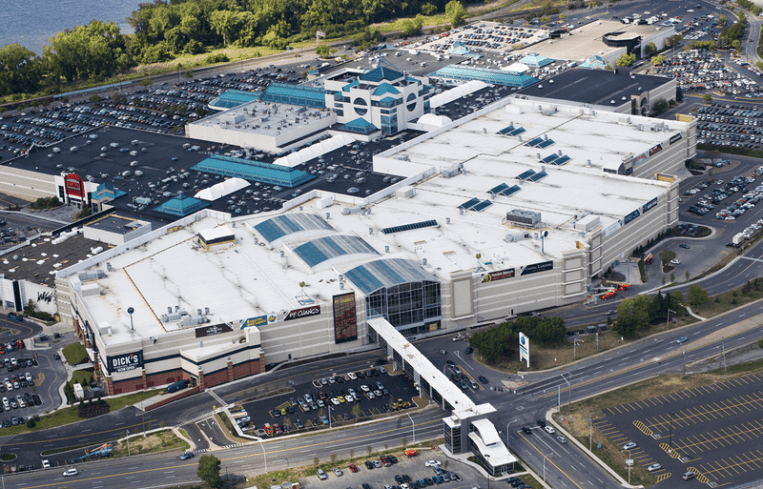Valuation of Syracuse Mall Backing CMBS Loans Plummets During COVID Struggles
By Andrew Coen January 15, 2021 4:34 pm
reprints
The value of a Syracuse mall backing two commercial mortgage-backed securities (CMBS) loans has sunk considerably amid declining foot traffic during the COVID-19 pandemic, according to a Trepp report released Friday.
The property, at 9090 Destiny USA Drive, backs the JPMCC 2014-DSTY SASB deal, comprising two loans totaling $430 million. The loans cover two phases of the Destiny USA super regional mall; the initial 1.2 million-square-foot asset and its 872,000-square-foot expansion.
The loan pieces saw combined appraisal reductions of more than $242 million as of November 2020, the Trepp alert shows.
In 2014, the first phase of the 2.4 million-square-foot project was valued at $490 million, while the second phase was valued at $220 million. This month, those valuations plummeted to $118 million and $85 million, respectively.
Destiny USA — New York State’s largest mall with roughly 2.4 million square feet of retail space — is owned by Pyramid Management Group, which has received multiple extensions on the CMBS loans originally due in March 2019. The loans were securitized by JPMorgan Chase, and then transferred to mortgage servicer, Wells Fargo, who provided a conditional extension, if improved financial metrics were met.
The mall was already facing declining profits prior to being forced to close its interior space for nearly four months starting March 18 due to the initial COVID-19 outbreak. Pyramid requested additional relief because of pandemic-related struggles, and on Dec. 30 received accommodations to its loan terms with the maturity date extended from October 2021 to June 2022. The loan was previously extended 16 months from its original June 2020 maturity date.
In addition to the two CMBS loans, Destiny USA’s expansion was also funded by $325 million of municipal bonds issued by the Syracuse Industrial Development Agency in 2007 backed by payments-in-lieu-of-taxes (PILOT).
Moody’s Investors Service downgraded its credit rating on the $292 million of outstanding PILOT revenue bonds one notch to B1 from Ba3 in June citing the pandemic’s negative impacts on mall traffic. Fitch Ratings lowered the same bonds by three notches to BB from BBB in May.
Officials at Pyramid did not immediately respond to a request for comment. Wells Fargo declined to comment.



